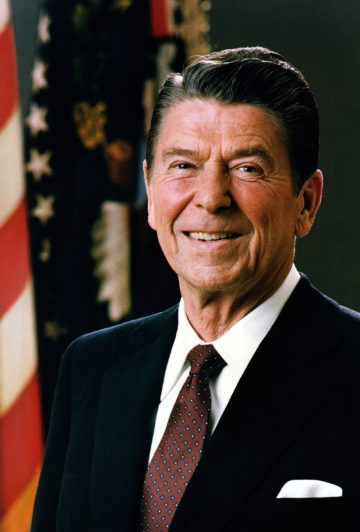
The President Who Tore Down That Wall
William Inboden
Ronald Reagan Institute | 2021
The most famous four words of the Cold War almost went unsaid.
When President Ronald Reagan stood at the Brandenburg Gate and demanded “Mr. Gorbachev, Tear down this Wall!,” he did so over the fierce resistance of his own Chief of Staff, the State Department, and National Security Council staff. For weeks leading up to the speech, Secretary of State George Shultz, Deputy National Security Advisor Colin Powell, and their respective staffs had expunged the offending words from multiple versions of the speech. Only to have Reagan himself, with the support of his speechwriters Tony Dolan and Peter Robinson, reinsert it each time.
The comments from State Department and NSC staff on early speech drafts give a flavor of the criticism of the imprecation against the Wall—and of other strong words Reagan planned to say. This “won’t fly with Germ[ans]. Not sentimental people.” “Seems silly as edited.” “This must come out. West Germans do not want to see East Germans insulted.” “Weak.” Needs “concrete ideas to sentimental fluff.” Too much “emphasis on good guys/bad guys.”
These objections were more than aesthetic. Behind them lay the substantive concerns of many foreign policy experts, not entirely without warrant, that Reagan should not challenge Gorbachev too directly and thus risk alienating or weakening the Soviet leader. And that the speech could damage relations with allies, especially West Germany; that it could raise false hopes and thus hurt America’s credibility; even that it could destabilize the delicate new reform equilibrium emerging in the Cold War.